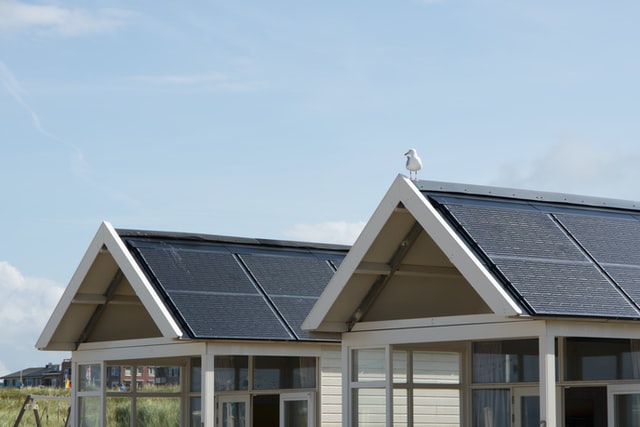You’ve probably seen hailstorm damage to cars, roofs, and other property. Now you’re wondering, what about hailstorm damage to solar panels? If, for example, you are looking at installing solar panels in Florida, where the hail season is usually between March and July, do you need to worry?
Farmers using solar panels for agriculture, especially in a place like Palm Beach County where there are about 487,845 acres of farmland as of 2017 may also want to know how much damage a hurricane/ hail will do to their installation.
While it is true that modern PV systems are designed to withstand all sorts of weather conditions, people still worry that adverse weather can result in a myriad of solar panel installation problems.
So, do solar panels break in hail storms? We will be addressing this question in this article.
Can solar panels be damaged by hail?
The top surface of these devices is almost universally made of glass, and virtually all of them pass the same tests meant to simulate impacts from hail. They are also designed to withstand whipping winds of 140 mph and more. This means that the risk of hail or hurricanes damaging your solar energy installation is low to non-existent.
Of course, you may experience some hail damage if you have weaker equipment. It happens, but rarely.
In fact, typical panels may be as resistant to hail as those at NREL’s (National Renewable Energy Laboratory) testing site that was hit by a hailstorm in May 2017. Only one of the 3,000 + panels at the site was damaged.
Testing And Certification Of Solar Panels
Testing is one important process that can answer the “does hail damage solar panels” question. Testing and certification ensure that your PV system meets all the necessary safety and performance standards.
One such test is handled by The International Photovoltaic Quality Assurance Task Force (PVQAT). NREL scientists work with PVQAT to increase the effectiveness and durability of PV systems.
The PVQAT provides standards for system quality inspections to guarantee that your installation has been designed and installed correctly. It also develops standardized quality tests to verify that the PV modules can withstand a range of climatic conditions.
IEC 61215: Standards for crystalline silicon terrestrial PV modules is another test and certification relating to stress and weather conditions.
Materials Used In Solar Panels
Solar panels are made up of a number of different materials, all of which are necessary for the equipment to function. The most important material in this equipment is the solar cell, which is made of semiconductor materials like silicon. These cells are what actually converts sunlight into electrical energy, making them the key component of any solar power system.
These devices also contain a glass or plastic cover, a metal frame, and electrical wires. The cover protects the cells from the elements while the frame provides support and stability for the module. The electrical wires are used to connect the cells to the rest of the equipment, allowing the electricity to flow through.
How You Can Additionally Protect The Solar Panel During A Storm
Here’s how you can protect your system if you live in a storm-prone area.
Get Insurance That Covers Solar Panels
Get insurance for your PV system as soon as possible after you install them. The best way to do this is through an umbrella policy that covers both your house and your equipment. This will cover any damage to your system that may occur during the storm.
Choose a Durable Product
Another way to ensure that your solar panels withstand hail is by choosing a durable model – one that has been proven over time to withstand even the strongest winds without breaking or bending out of shape. This means purchasing from a reputable company and ensuring that it has been tested and certified by an independent lab before being installed on your roof or other structure.
Install a Protective Cover
If you can access your installation (like ground-mounted PV modules), you can cover them before storms. You might be able to get a cover from your PV installer.
Do Solar Panels Work When There’s A Storm?
Equipment from reputable brands like PPM Solar can work in even the worst weather conditions, but can solar panels survive a hail storm? The short answer is yes. Modern PV modules can now withstand hail storms thanks to advances in design.
Plus, these gadgets are waterproof, so they are usually able to generate up to 25% of their optimal capacity on poor weather days, even though they’re more efficient when they receive direct sunlight.
It is important to point out here that even though solar panels are hurricane resistant, it doesn’t necessarily mean they’ll provide power after. Grid-connected PV modules, for instance, will shut off if a power outage occurs, even if they’re functioning properly.
Conclusion
In conclusion, PV systems are designed to withstand hail storms, but they can break under the right conditions, such as when the modules are sub-par quality or the installation was not done right.
If you are worried about your solar panels, get in touch to talk about your concerns.



